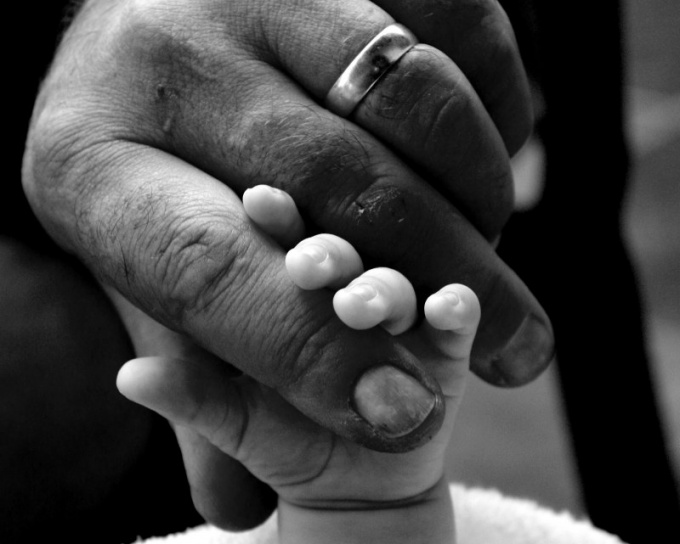The family code of the Russian Federation assumes that children are born in an officially registered marriage, which automatiseret procedure record of the father and mother of the child. However, this legal act provides for certain behaviors for the birth of a child by persons not consisting in official marriage and family relations. In practice, such situations are fairly common, and not always possible to make a record of the child's father immediately after his birth. In particular, the legislation provides two ways of establishing paternity, the first being voluntary and the second is associated with the necessity of going to court and proving the origin of a child from a particular male.
The usual and most simple method of recording the child's father in the absence of a registered marriage is considered a joint application of the persons who actually are parents. This application is submitted to the civil registry office immediately after birth of the baby, and under certain circumstances may be presented on the stage of pregnancy. So, the parents retain the right to pre-submission of such application if they consider that his writing after the birth is complicated or impossible. If the child's mother recognized as incapable, dead or missing, the record of the father can be made on the basis of his personal statement, subject to the prior consent of bodies of guardianship and guardianship.
In some cases, the child's father, unmarried with his mother, does not agree to the voluntary filing of a joint statement aimed at records and the emergence of parental rights and responsibilities. The only option to make an entry about the father in this case is submission of an application to the court, whose decision will be determined paternity. The right to apply has the child's mother or other legal representative (guardian, Trustee). Also, such a statement may be filed by the child, but only when they reach the age of eighteen. The court accepts and considers any evidence that confirm the paternity of the individual citizen. In the case of a judicial act of paternity of a particular person, the authorities will make a record on the basis of this decision, and the participation of the father is not required.
How to write a father on the basis of a personal application?
The usual and most simple method of recording the child's father in the absence of a registered marriage is considered a joint application of the persons who actually are parents. This application is submitted to the civil registry office immediately after birth of the baby, and under certain circumstances may be presented on the stage of pregnancy. So, the parents retain the right to pre-submission of such application if they consider that his writing after the birth is complicated or impossible. If the child's mother recognized as incapable, dead or missing, the record of the father can be made on the basis of his personal statement, subject to the prior consent of bodies of guardianship and guardianship.
How to write a father on the basis of a judicial decision?
In some cases, the child's father, unmarried with his mother, does not agree to the voluntary filing of a joint statement aimed at records and the emergence of parental rights and responsibilities. The only option to make an entry about the father in this case is submission of an application to the court, whose decision will be determined paternity. The right to apply has the child's mother or other legal representative (guardian, Trustee). Also, such a statement may be filed by the child, but only when they reach the age of eighteen. The court accepts and considers any evidence that confirm the paternity of the individual citizen. In the case of a judicial act of paternity of a particular person, the authorities will make a record on the basis of this decision, and the participation of the father is not required.






